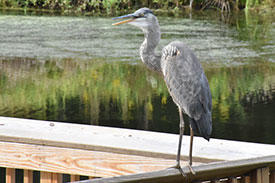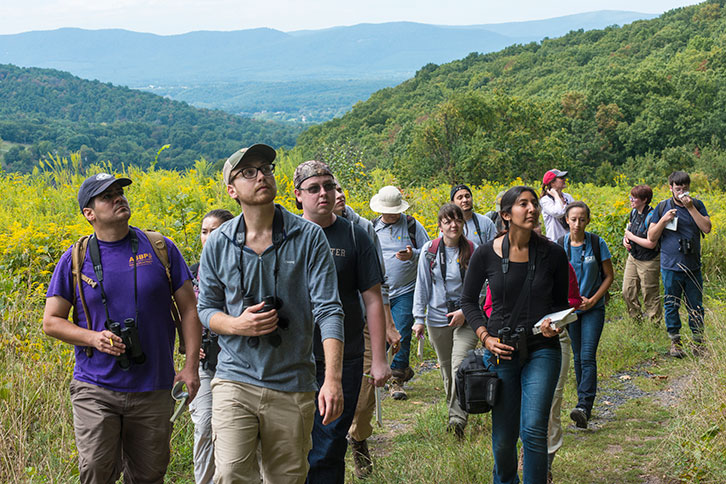Another Option to Study Science in the Field
Mason's Potomac Science Center, along Belmont Bay near the mouth of the Occoquan River, focuses on environmental science research along the Chesapeake Bay watershed.
Talk About A Classroom With a View ...
Lectures are an important part of learning, but you want more. Experiential learning, research, and field work partner with classroom studies to give you real-world experience while earning academic or continuing education credit at the Smithsonian-Mason School of Conservation (SMSC).
Classes are limited to a maximum of 20 students, so you'll be part of a tight-knit team, working with conservationists, researchers, and educators conducting lab and field research. You'll feel as if you're a working scientist — because you will be.
And you'll live in the mountains alongside Shenandoah National Park. They don't call it the great outdoors for nothing.
Undergraduates
First-year students can apply to the Smithsonian-Mason Scholars Program, which offers:
- A merit scholarship to attend the program.
- A tour of SMSC and SCBI.
- Priority registration to a one-week summer field course.
- Access to seminars by internationally known researchers and scientists.
Sophomores, juniors, and seniors have a choice of three semester-long programs:
- Conservation, Biodiversity and Society (16 credits) explores how science, management and policy affect conservation.
- Wildlife Ecology and Conservation (16 credits) uses cutting-edge field techniques to survey species in the wild, and to spot and record local, national, and global ecological patterns.
- Endangered Species Conservation (16 credits) finds and measure how shrinking populations are vulnerable, and develops strategies to halt their path to extinction.
SMSC offers merit and and need-based scholarships to students who meet certain qualifications.
Post-Graduate and Professional Studies
Masters and doctoral students and conservation professionals study with researchers and practitioners working in the field around the world. SMSC’s advanced and highly specialized courses are offered as intensive one or two-week sessions. They’re crafted and scheduled based on:
- New and existing threats to biodiversity.
- New and existing conservation opportunities.
- Workforce and employer needs and requirements.
- Requests from students.
Students' coursework can be applied to Mason’s Environmental Science and Policy concentration in the Conservation Science and Policy MS or to programs at a student’s home university. Professionals will earn continuing education units (CEUs).
In-depth study of a specialized area of biodiversity could include such topics as:
- Animal surveys.
- Genetics.
- Climate modeling.
- Species monitoring.


